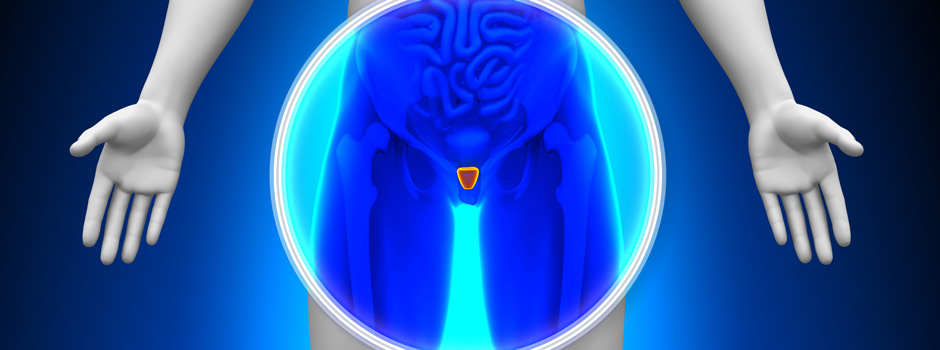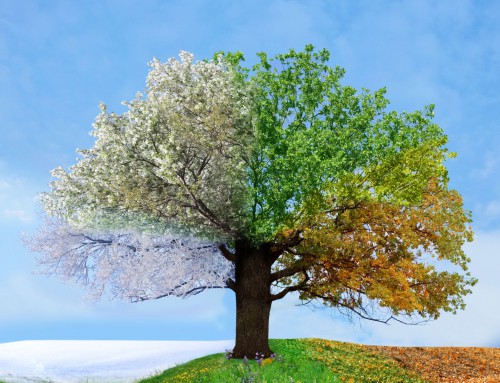There comes a time in almost every man’s life when he has to look to the health of his prostate gland. Fortunately Maharishi Ayurveda has excellent advice, as well as herbal preparations and detox treatments, that can help restore the health of this vital gland.
What does the prostate gland do?
Just as mammary glands are particular to women, the prostate gland is particular to men. In fact it is a part of the male reproductive system or, in Ayurvedic terms, it is a part of Shukra Dhatu (see sidebar).
 The prostate lies just beneath the bladder and is normally about the size of a chestnut. The urethra (the tube which passes urine from the bladder) runs through the middle of the prostate.
The prostate lies just beneath the bladder and is normally about the size of a chestnut. The urethra (the tube which passes urine from the bladder) runs through the middle of the prostate.
The prostate’s main function is to produce a fluid that protects and enriches sperm during ejaculation.
How does age affect the prostate?
Around the age of fifty the prostate can tend to enlarge and by the age of seventy, about 80% of men have an enlarged prostate.
In most cases this condition is benign and non-cancerous but, due to the prostate gland’s position and because the urinary tract runs through it, this enlargement can lead to urinary problems, such as difficulty preventing and starting urination.
Prostate cancer may sometimes develop. Such cancers are usually slow growing, but some may develop more rapidly.
Some men develop an inflammation of the prostate called prostatitis. This is often associated with bacterial infection and can be either acute or chronic.
Ayurveda and Prostatitis, Enlarged Prostate and Prostate Cancer
Prostatitis
According to Ayurveda our body is governed by three fundamental elements or Doshas (see sidebar): Vata, governs movement; Pitta governs transformation; Kapha governs structure. When these three Doshas are in balance with each other we experience health. When they go out of balance and any Dosha becomes over-dominant, we experience ill health.
Due to wrong diet, lifestyle and stress, both Vata and Pitta can get disturbed at the same time and go out of balance in our body. If we also overtax our digestive system, this can add to the imbalances within the Doshas.
Ama is the result of incomplete digestion. Sometimes translated as unripe or under-cooked, it is partially digested food and is usually the result of overeating or eating when you are not hungry. If this Ama is not eliminated quickly, it can start interacting with the disturbed Doshas.
The mixture of disturbed Vata and Pitta Doshas with Ama, causes the more toxic form of Ama called Amavisha. When Amavisha accumulates around the prostate region this can result in prostatitis.
Prostatitis is an inflammation of the prostate and is often associated with bacterial infection.
Enlarged Prostate
As we age, Vata, the Dosha that controls movement, tends to increase and over the age of 50 we enter the Vata time of life. In this stage of life, whatever the natural state of Doshic balance we were born with, the influence of Vata tends to increase.
At this time, testosterone, the male sex hormone that influences the prostate, is in decline.
During this period of life when the influence of Vata is naturally high, if we maintain a lifestyle or diet that further increases Vata, the health of our prostate will get compromised.
The influence of high levels of Vata, which is the Dosha associated with movement, will tend to push any toxic Ama we have in our body into our muscle and fat tissues. This, along with any Ama that has mixed with a sub-dosha of Kapha called Shleshaka to create Shleshma, will affecting the cell junctions, causing the prostate to enlarge.
Prostate Cancer
If the factors, including lifestyle and diet, that cause the above imbalances are not reversed, the situation may deteriorate further. The more toxic type of Ama called Amavisha can develop. When Amavisha affects the blood, fat tissues and Shleshaka Kapha in the prostate region, it can cause a breakdown in communication between prostate cells.
The natural intelligence in the prostate area gets disrupted. This means that the cells can forget their own nature and start to grow uncontrollably. This can lead to prostate cancer.
What does Ayurveda say about what causes prostate imbalances?
From an Ayurvedic perspective a number of causes can combine to create prostate imbalances.
Downward moving Vata
The location of the prostate is in the area controlled by Apana Vata. Apana Vata is a sub-dosha of Vata (see sidebar) and is responsible for the downward movement of Vata that dominates urine production, stool and reproductive juices.
Vata can be disturbed by diet, irregular daily routines, overexertion and stress. The downward movement of Vata gets disturbed and imbalanced Apana Vata will adversely affect the prostate.
Excessive loss of semen
The depletion of Shukra Dhatu (reproductive tissue) through too much sexual activity can disturb the prostate.
The prostate primarily consists of the tissue Ayurveda calls Shukra Dhatu. Out of all the body tissues Shukra is seen as the most refined. Many levels of digestive processes or Agnis are involved to produce a small amount of Shukra from a large amount of food.
Semen is also made of Shukra Dhatu and when it is lost during sex this means a large loss of the Shukra tissue from the whole body. Shukra has many different locations in the body besides the sexual organs, and many different functions beside reproduction. It providing us with strength and immunity (Bal), so it is important that this loss be made up quickly. Our body therefore has to process a good amount of nourishing food in order to supply the missing Shukra.
When we are young, our digestion power is usually strong and the lost Shukra can normally be replenished quickly. As we age our digestive power tends to decline and any loss of Shukra through sex takes more time to replenish.
This is why Ayurveda warns against excessive sexual activity and recommends that we reduce the frequency of sex as we age. Also, because the prostate is made of Shukra, this organ can be more affected by the loss of semen during sex than most others.
Lack of body fluids
Sometimes we don’t get enough fluids in our body because we aren’t drinking enough water during the day. This can negatively impact our prostate.
Check the colour of your urine. If it is dark yellow, this is often a sign of lack of fluids in your body. Have a flask of warm or hot water by your side when you work and drink frequently. Avoid drinking immediately before or after meals though, as this dilutes your digestive juices.
Tea or coffee is no substitute for pure, unchlorinated water, especially as both drinks tend to overheat the body and this can inflame the prostate. Chlorine in tap water has an irritating and heating affect on the body tissues and so tap water should be filtered.
Disturbed Pitta can affect the prostate
Overheating the body though diet, overtaxing the mind through overwork, and disturbing the emotions through anger or frustration can all increase Pitta Dosha.
Since our blood is naturally high in Pitta, excess Pitta can adversely affect it. This in turn can affect the urine and can contribute to inflammation in the prostate area.
Take care of your digestion
A major factor that can contribute to prostate imbalances is Ama – a toxin build-up, usually caused by poor digestion.
Ama is partially digested food that cannot be absorbed by the body. If it hangs around too long it can become toxic and this is known as Amavisha.
Amavisha, or toxic Ama, can mix with Shleshaka, a sub-dosha of Kapha.
Shleshaka is a lubricant that sits in all joints and cell junctions. It also coats the channels that supply the nutrients to our body and Shleshaka helps facilitates the smooth transport of those nutrients.
If Ama is allowed to sit in the body for too long it can interact with Shleshaka and create Shleshma – a sticky substance which clogs the joints, cell junctions and body channels. Instead of facilitating movement of nutrients, Shleshma tend to prevent full nutrition reaching the cells and waste products leaving the cells. This has a negative impact on the cells as well as organs, tissues and glands such as the prostate.
Suppressing the natural urge to pass urine
There you are sitting at the computer or sitting in the car and you feel the urge to urinate. But there is that report to finish, or you decide to skip that service station and wait till you find another a few miles down the road. So you end up supressing the urge to urinate and just put up with the discomfort.
This is not a good idea according to Ayurveda, which tells us that supressing natural urges will lead to imbalances and eventually illness.
The prostate is located directly below the bladder and so is very much affected by the condition of that organ. When we suppress the urge to go to the toilet (or bathroom in the US) this puts pressure on not only the bladder but also the prostate and disturbs its balance.
Prolonged sitting
If you are a man, because of its location, you are more than likely sitting on your prostate right now. Pressure is placed on the prostate, which restricts its normal circulation and increases heat.
We live a far more sedentary life than our ancestors and most of us sit down for much of the day. This may be one of the reasons for the huge increase in prostate issues in recent decades.
Other factors that can affect the prostate
Unnatural routines, such as going to bed to late, getting insufficient sleep and not getting enough exercise can all push the prostate out of balance.
Alcohol creates an abnormal increase in urine production, which can aggravate Pitta and Vata doshas, especially in the region of the prostate. Caffeinated beverages can also cause similar imbalances.
In the next article – Ayurveda and Prostate Solutions – we will look at what Ayurveda can do to prevent and help with prostate imbalances.






